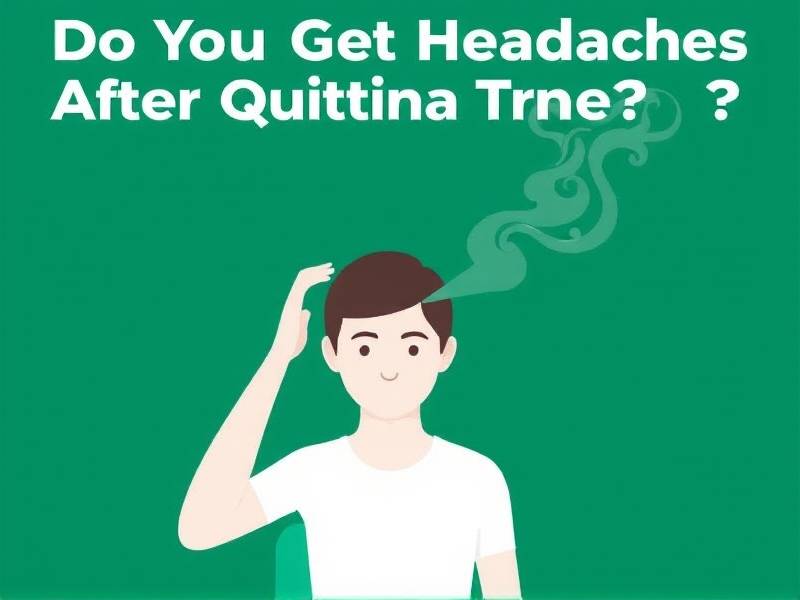Do You Get Headaches After Quitting Smoking? The Truth About the Side Effects of Quitting Tobacco
Understanding the Connection Between Smoking and Headaches
Quitting smoking is a significant step towards a healthier lifestyle. However, many individuals report experiencing headaches after they stop smoking. This article delves into the reasons behind this common occurrence and provides insights into the side effects of quitting tobacco.
The Immediate Impact of Quitting Smoking
When you quit smoking, your body begins to undergo a series of changes. One of the most immediate effects is the withdrawal from nicotine, a highly addictive substance found in tobacco products. Nicotine is known to constrict blood vessels, and its absence can lead to an increase in blood flow, causing headaches in some people.
Why Do Some People Experience Headaches After Quitting Smoking?
1. Nicotine Withdrawal
Nicotine withdrawal is a common reason for headaches after quitting smoking. As your body adjusts to lower levels of nicotine, it may experience symptoms such as irritability, anxiety, and headaches.

2. Increased Blood Flow
Without nicotine constricting blood vessels, blood flow may increase in your brain, leading to tension headaches or migraines.
3. Dehydration
Quitting smoking can also lead to dehydration due to reduced saliva production. Dehydration can cause headaches as it affects the electrolyte balance in your body.

4. Sleep Disruption
Smokers often use cigarettes as a way to relax and fall asleep. Without this habit, some people may experience sleep disturbances that can contribute to headaches.
How Long Do Headaches Last After Quitting Smoking?
The duration of headaches after quitting smoking varies from person to person. Some individuals may experience them for a few days or weeks while others may continue for several months. It's important to remember that these headaches are temporary and are part of your body's adjustment process.
Coping with Headaches While Quitting Smoking
To cope with headaches while quitting smoking:
- Stay hydrated by drinking plenty of water.
- Practice relaxation techniques such as deep breathing or meditation.
- Maintain a regular sleep schedule.
- Consider nicotine replacement therapy (NRT) or other smoking cessation aids under medical supervision.
The Benefits of Quitting Smoking
Despite the challenges that come with quitting smoking, it's important to remember the long-term benefits:
- Reduced risk of heart disease and stroke.
- Improved lung function.
- Decreased risk of cancer.
- Better overall health and well-being.
Conclusion
Headaches are a common side effect of quitting smoking but are usually short-lived. By understanding the reasons behind these headaches and implementing strategies to manage them, you can increase your chances of successfully quitting tobacco and enjoying a healthier life. Remember that seeking support from friends, family, or healthcare professionals can make the journey easier.
As you embark on this journey towards better health, keep in mind that every step you take away from tobacco is a step towards a brighter future for yourself and those around you.
